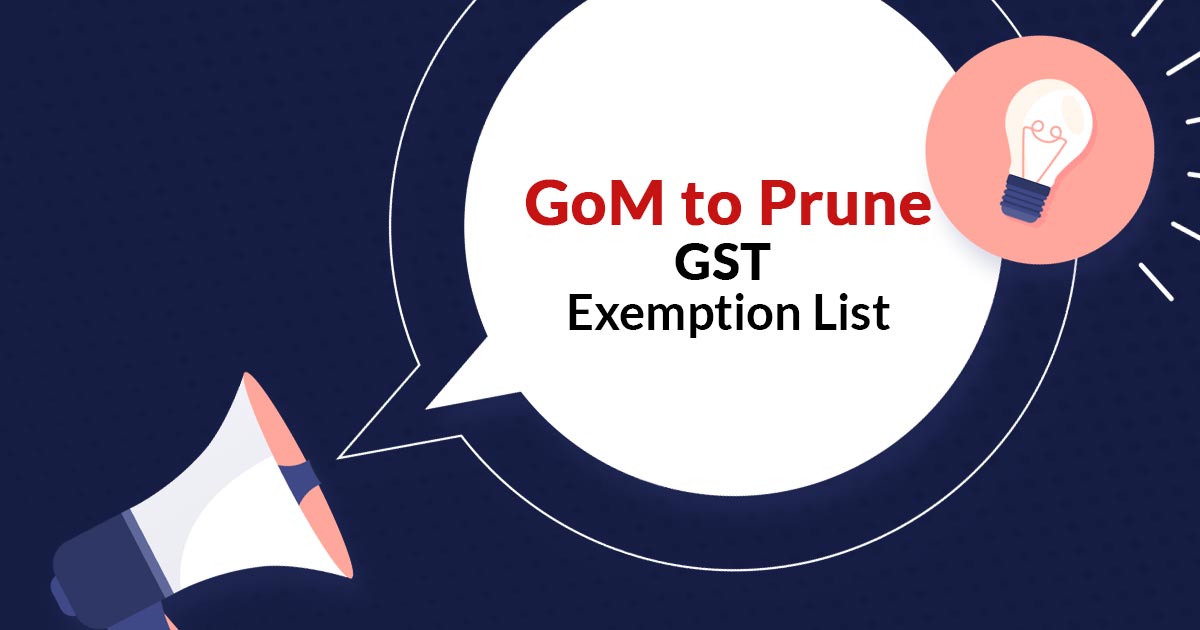
An empowered group of ministers (GoM) seeing towards rationalizing the rate might be asked for reducing GST exemptions on the specific goods and services and rectifying the inverted duty framework in the subsequent 47th GST council meeting.
The ministerial panel might be conducted before the council meeting and might postpone its rate rejig concern till the pressure of inflations gets released.
The Council, which is anticipated to meet this month or the earlier following month, seeks GoM recommendations on exempt goods and removing anomalies from taxing raw materials higher than finished goods.
He mentioned that the panel is anticipated to discuss the cases excluding the rate rejig. Before that, it seeks to acknowledge increasing the lowest limit slab beneath the GST to 7% or 8% which currently is 5%, except for revising the additional tax classes.
Karnataka Chief Minister Basavaraj Bommai, who leads the ministerial panel, will verify some recommendations from the fitment committee upon the inverted duty structure and might suggest the relevant rates to remove these concerns in which the final product draws a lower GST as compared to the tax imposed on its inputs. The exempt list of items like unbranded and unpacked foods on which no GST is being there in the present times might be opted by the panel.
When the rate of GST for the raw material exceeds that for the finished product then the inverted duty structure gets arises, which produces an outcome in the ITC accumulation that impacts the cash flow of the firms.
Because of cash flow issues for manufacturers, the inverted tax structure under GST needs to be rectified, even though some inversions have already been revamped. The GoM is anticipated to develop a roadmap on the stated issues.
Towards the inverted duty structure, the panel shall verify the government’s refused rate rejig in textiles, the council has refused the rate rise from 5% to 12% on various items in the textile and the apparel sector in December last year, along with woven fabrics of cotton, silk and wool, coir mats, apparel, and clothing accessories of sale value up to Rs 1,000, that was to be effective from January 1.
Panel indeed sees to discuss on the inverted duties in the electric vehicles and fertilizers but the same might not have opted currently because the EV industry is not till grown up and the rates of the commodity are suffering from fluctuations.
The council before had addressed the problem of the duty inversions on various things like footwear and mobile.
In various cases, the accumulated ITC does not refundable, like for the capital goods and the input services when the rate structure gets inverted. The same facts make blockage of refund. It is good to rectify the duty inversions and eliminate the exemptions on the specific items.
“Some industries are severely affected by inverted duty structure, textiles being a case in point. Three-fourths of the domestically produced textile items are sold in the domestic market. India’s competitiveness in the global textiles market, where synthetic textile products have a much larger share than cotton-based products, has been impacted owing to the inverted tax system, said the tax expert.”
The task has been allocated to the panel to verify the whole GST rate structure and the problems related to the textiles value chain, and submit the report of it.
“Inverted duty has created distortions in GST which is a deviation from the basic structure of a value-added taxation system. Taxpayers are plagued with working capital blockage as crucial resources remain blocked in the form of ITC, said the tax expert.”
The GST law gives the refund of these unused input tax credits on the basis of the inverted duty there are some other issues like the quantum of the refunds, and the basis of the formula prescribed. Towards these refunds beneath the inverted duty structure has been a bigger cause for assessees to think upon. There are 149 types of goods and 87 services on which no GST is being imposed.








